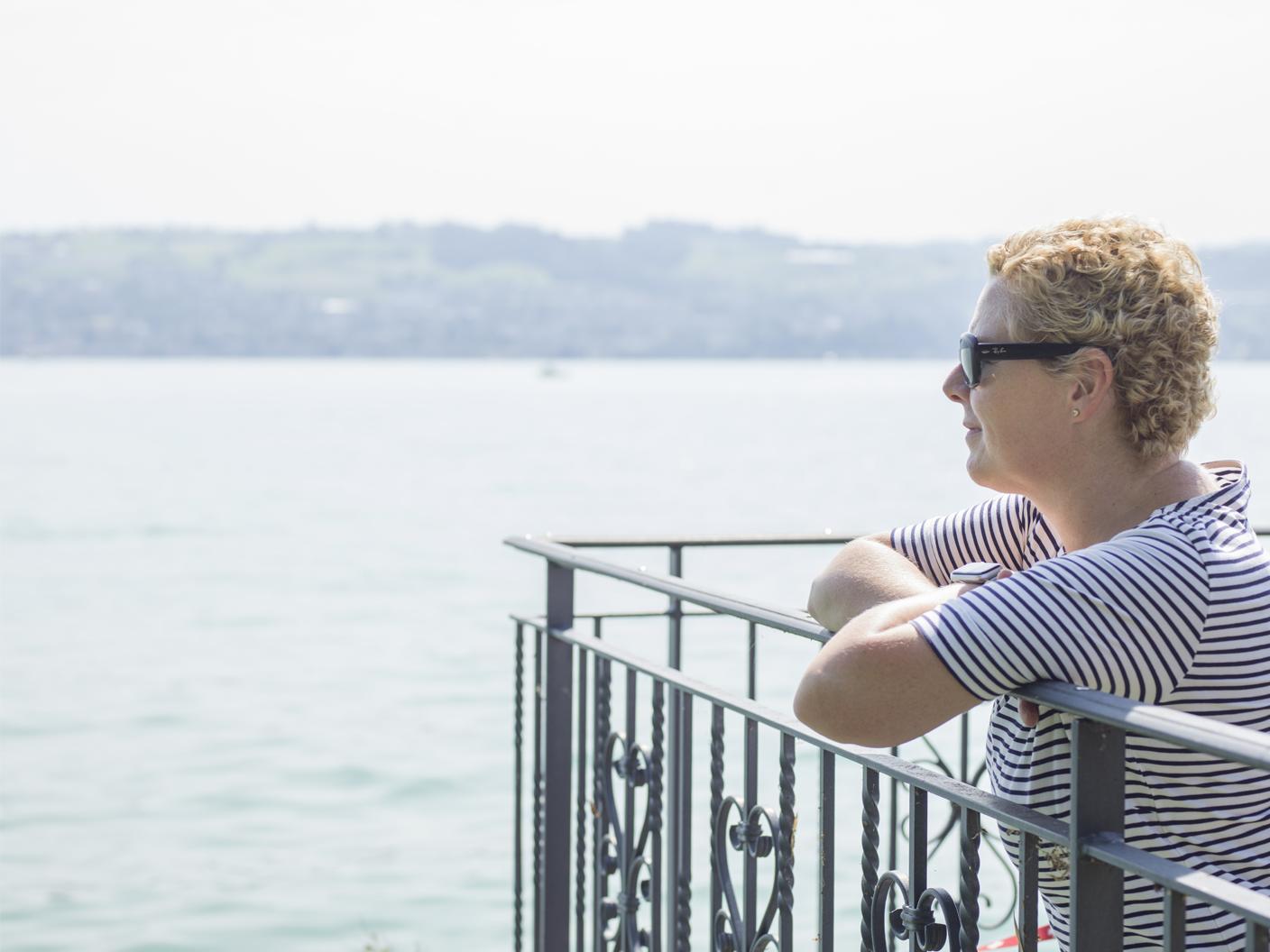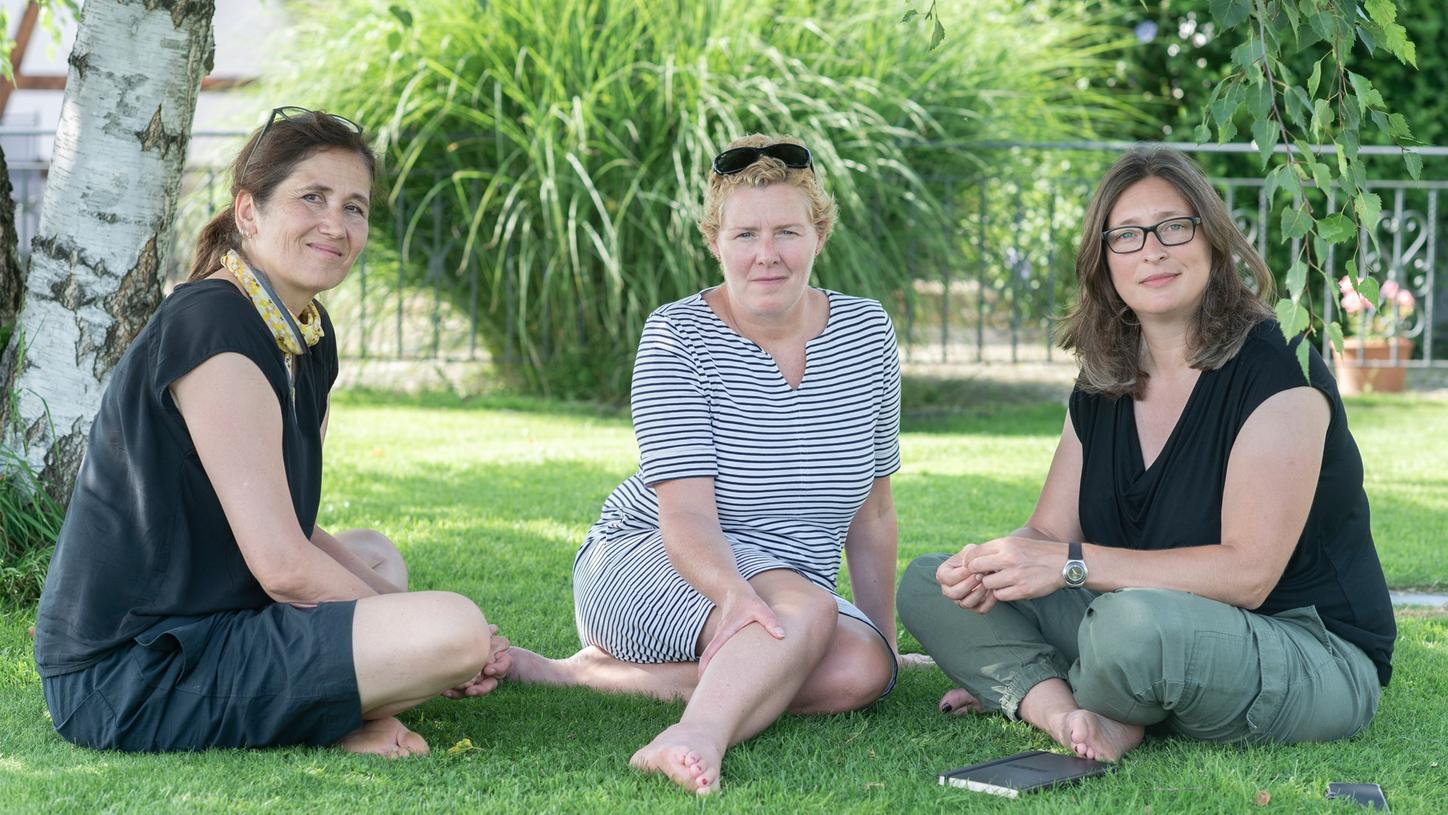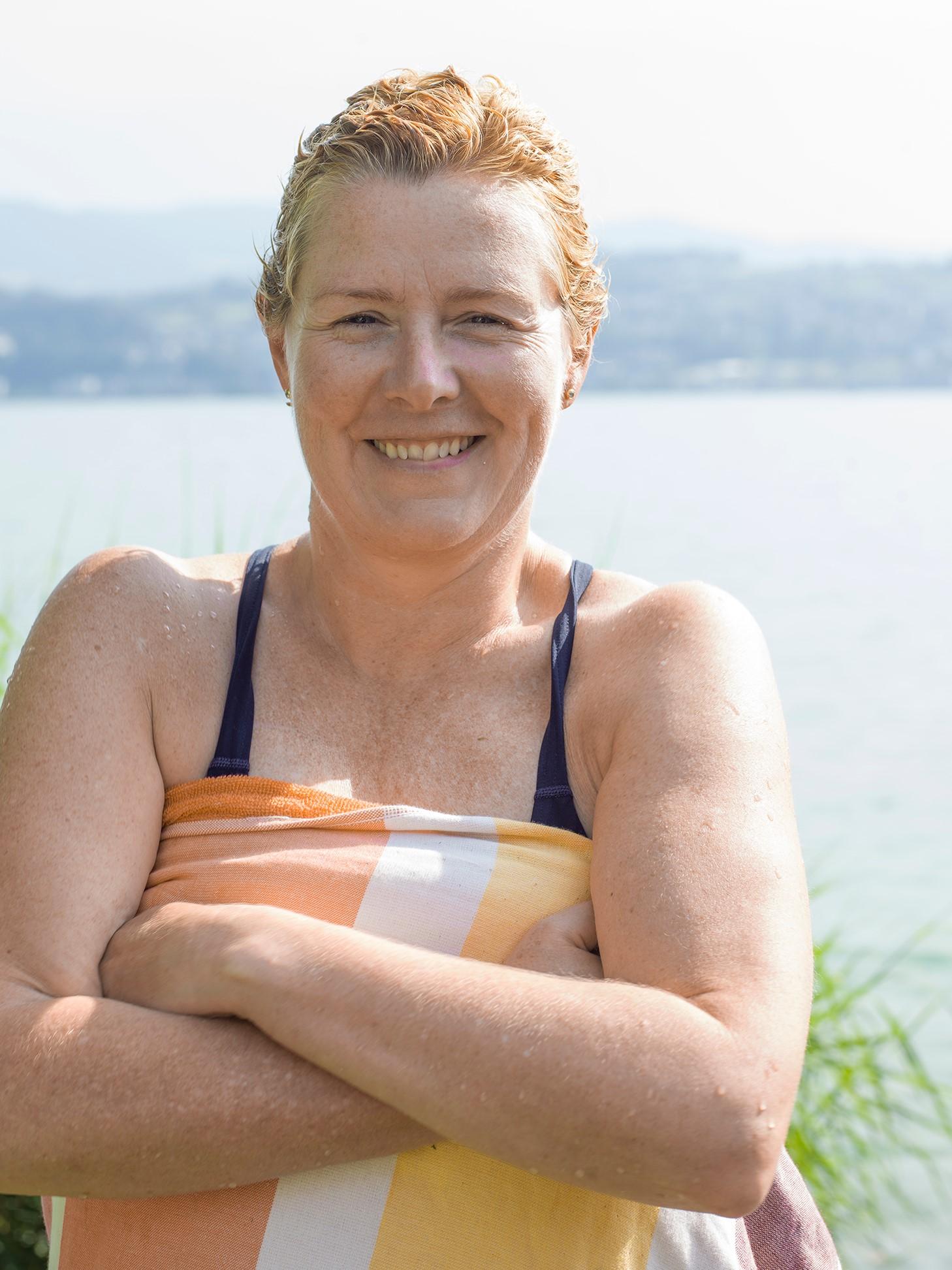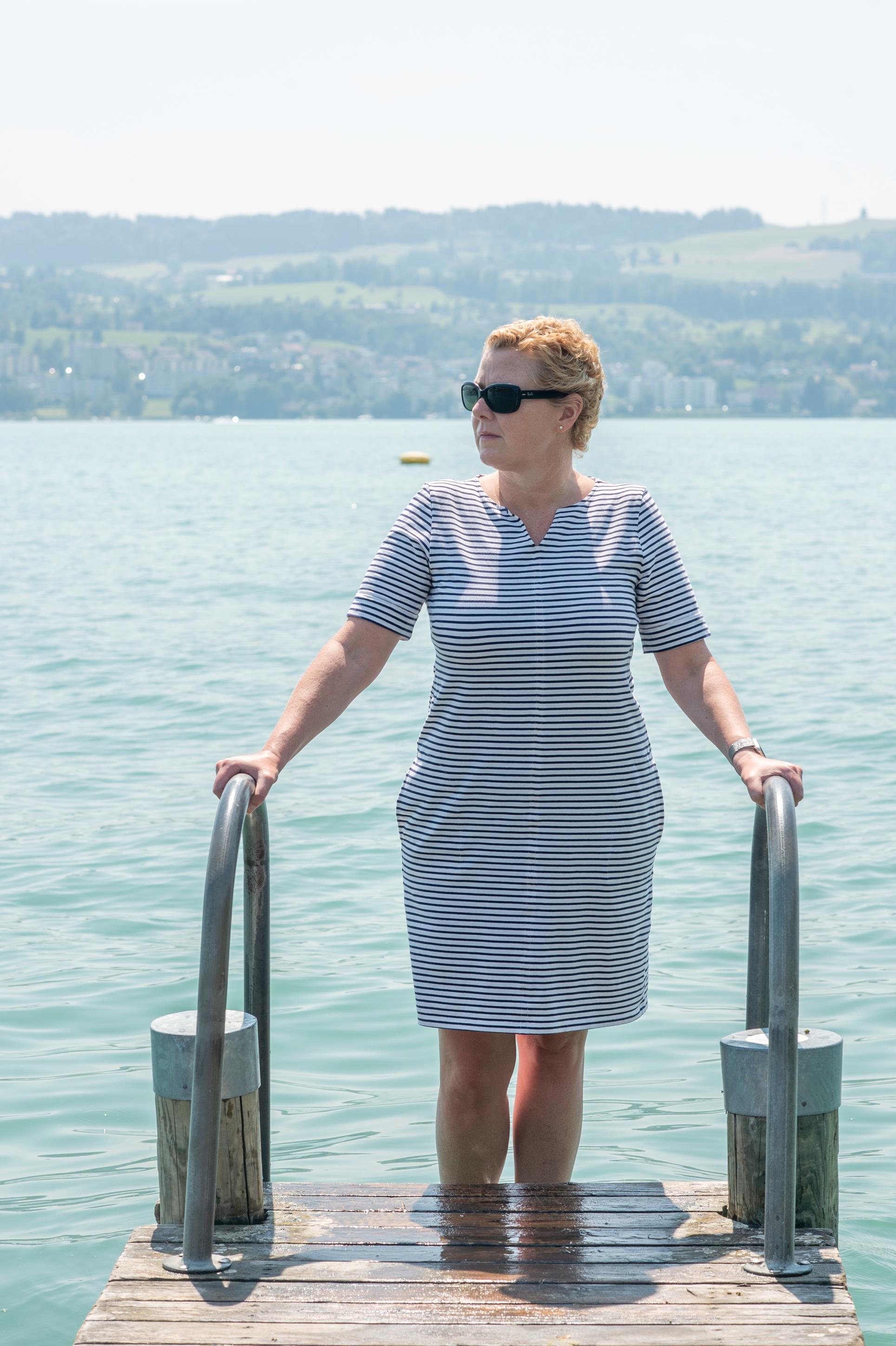
Breast cancer: “We can be braver and stronger than we think”
Three women, three countries, three individual breast cancer stories. In the first part of this three-part series, Lynette, a breast cancer survivor from Switzerland, meets up with our journalist and a photographer on the shores of Lake Zürich. Lynette’s story is augmented by quotes from her personal cancer blog, Silver Linings[3]: a happy tale of cancer treatment.

I did not expect bad news, at all. I had even almost forgotten that I was going to get results after a weekend celebrating Swiss National Day, hiking in the mountains and drinking and eating a little too much with great friends.
Lynette Jackson "Silver Linings, a happy tale of cancer treatment"
I knew my Mum might kill me herself if I didn’t tell her quickly. Write a list of the top 100 calls you don’t want to make.
Lynette Jackson "Silver Linings, a happy tale of cancer treatment"
So far, I have just been positive. There is no other choice in my mind. Yes, I bloody wish this hadn’t happened, but it has, so I aim to deal with it in the best possible way.
Lynette Jackson "Silver Linings, a happy tale of cancer treatment"

Now for making plans. I found a local, English speaking cancer support group and some ladies have shared useful information. I made an appointment for a wig fitting, downloaded a hideous app to see what I look like with short hair… er just no!
Lynette Jackson "Silver Linings, a happy tale of cancer treatment"


Something incredible about the cancery journey so far is how amazing I have felt. It’s a cliché that you learn what really matters in times of adversity. But I find myself looking in the mirror and really, really liking what I see.
Lynette Jackson "Silver Linings, a happy tale of cancer treatment"

Once more, if you are reading this and haven’t had a check-up that you should have, please pick up the phone to book it. Catching it early made my cancery tale one with a happy ending. Please don’t put anything off.
Lynette Jackson "Silver Linings, a happy tale of cancer treatment"
1 Triple-negative breast accounts for 10-20% of all breast cancers. It has fewer treatment options than other types of breast cancer because the cancer cells do not have the estrogen or progesterone receptors or enough HER2 protein to make targeted drugs work.
- The shooting/interview/fotoshooting took place under all necessary health and safety measures according to local Covid-19 regulations.
- The statements by Siemens Healthineers customers described herein are based on results that were achieved in the customer’s unique setting. Since there is no “typical” hospital and many variables exist (e.g., hospital size, case mix, level of IT adoption) there can be no guarantee that other customers will achieve the same results.













